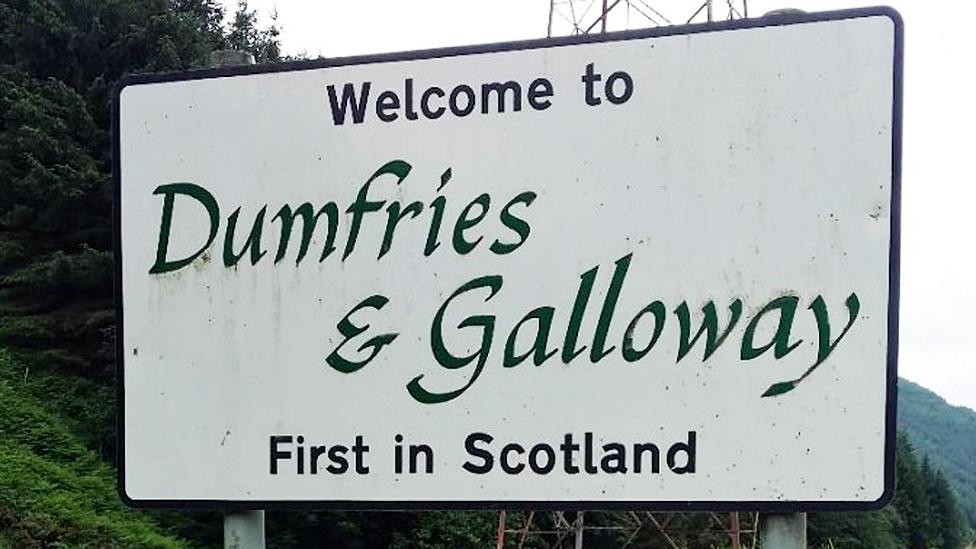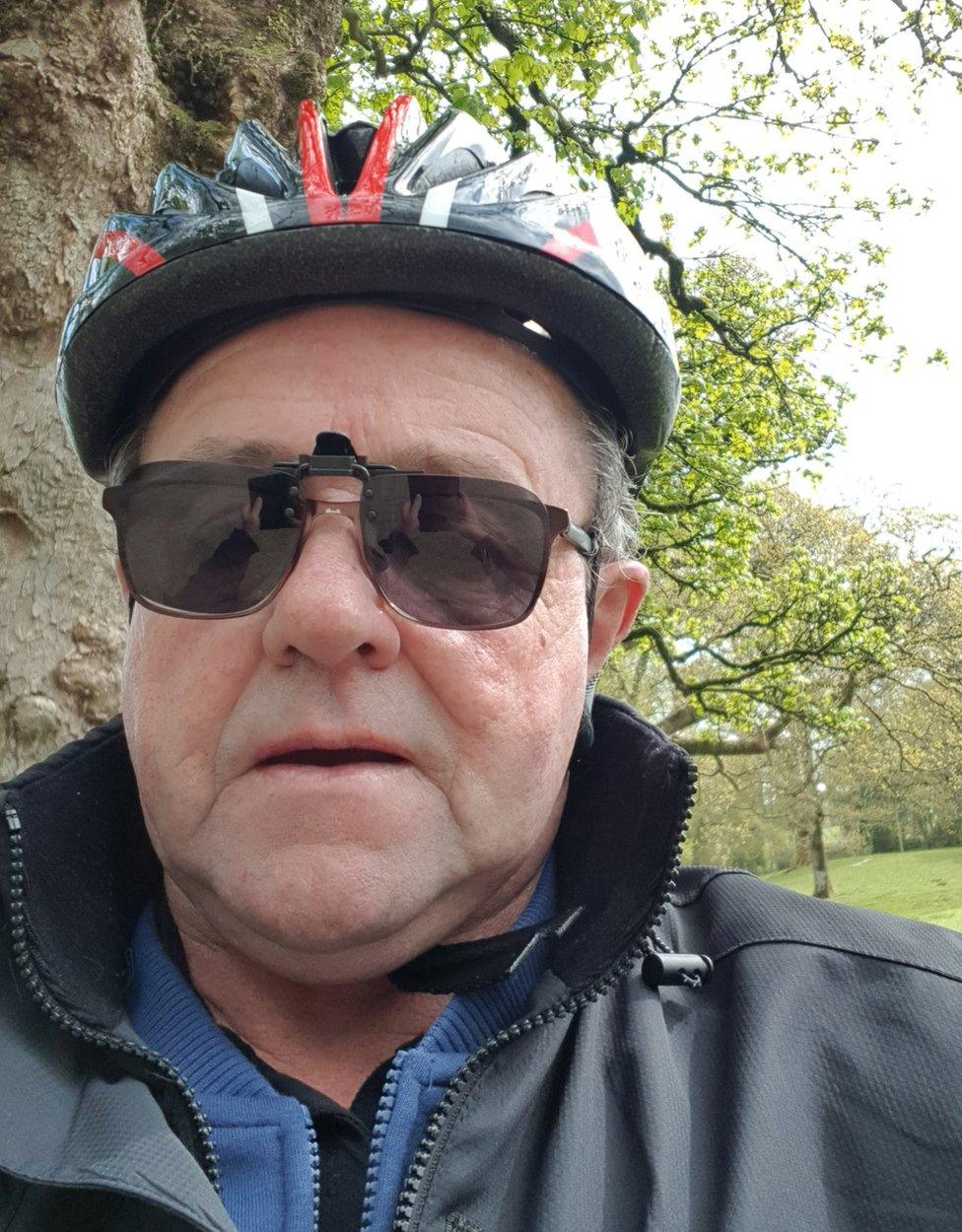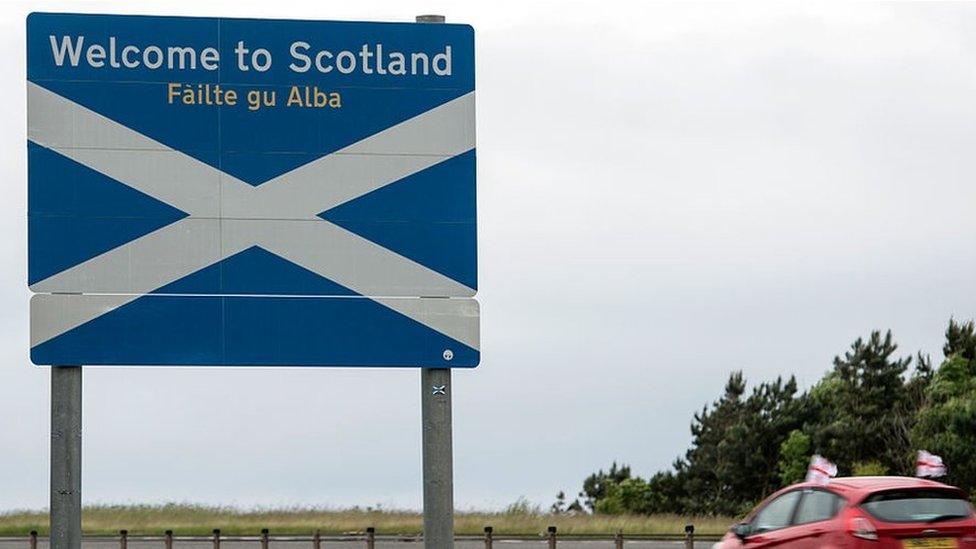Are the borderlands UK's 'forgotten region'?
- Published

Locals in Dumfries and Galloway have already spotted a rise in tourists despite lockdown in Scotland
What happens when you are given one set of rules to follow, while your neighbour is told something different?
One MSP called the borderlands the "forgotten region" after a new "Stay Alert" messaging campaign from the UK government clashed with Scotland's "Stay at Home" policy.
Concerns have arisen that the move will prompt an increase in footfall to Scottish beauty spots and pressure people living in Scotland to go back to work if they are based in England.
Meanwhile, southern communities in Scotland have relatively-low recorded cases of coronavirus while Cumbria - which shares a border with Dumfries and Galloway - has one of the highest infection rates in England.
Could tourists up the risk factor?
Nicola Sturgeon remained clear on the point about essential travel, saying that it was "not OK" for people to drive to Scottish beauty spots for leisure.
However, locals have already spotted tourists returning to areas close to the border and worry that Boris Johnson's message about travel lacked clarity.


John Hardie, 62, is a self-employed gardener who lives with his wife in Dumfries.
He says he could be working, but has chosen to stay at home to keep his household safe - particularly as he has anxiety and depression.
Dumfries and Galloway's health board has the fourth lowest recorded number of Covid-19 cases in Scotland.
But in light of the UK government's relaxation of lockdown guidelines in England, John worries that all the efforts of people in the area could be "spoiled" if there is a spike in tourism.
He said: "Carlisle is only an hour away and even before you get to Dumfries you've got places like Gretna Green and Annan - all these places have coastlines and nice walks.
"Boris Johnson said people could drive - he didn't say you could drive within the confinements of your own places.
"What you don't want is people thinking they can drive to Scotland - and they could well do if the prime minister doesn't clarify what he meant.
"I've got concerns for myself, my wife and various others, this disease is so easily spread that even if you had six or seven people coming in, that's six or seven too many."
MSP for Galloway and west Dumfries Finlay Carson echoed John's concerns, saying that towns had already seen a rise in visitors.
Allow X content?
This article contains content provided by X. We ask for your permission before anything is loaded, as they may be using cookies and other technologies. You may want to read X’s cookie policy, external and privacy policy, external before accepting. To view this content choose ‘accept and continue’.
On Friday, the Daily Record's front page indicated that police could turn tourists coming from England away at the border with Scotland.
However, Chief Constable Iain Livingstone said this was "misinformed speculation" and that officers would not be operating roadblocks.
He said: "We will engage with members of the public, just as we would in the Scottish border just as we would in the Scottish Highlands but there's absolutely no intention to have roadblocks on the Scottish-English border."
Police Scotland confirmed that their position remained the same on Monday.
Living in Scotland and working in England
South Scotland MSP Colin Smyth said that while Mr Johnson's announcements only applied to England, they had "huge implications" for people who lived in Scotland but worked south of the border.
He said: "They will now be unsure when they are expected to return to work, and if they have children, Borders and Dumfries and Galloway Councils will come under pressure to add them to their list of key workers so they can access childcare.
"With so many people in borders communities travelling in normal times between Dumfries and Galloway and Cumbria and the Borders and Northumberland every day for work, health, education and leisure, the UK and Scottish governments need to understand that the decisions they both make, will impact on people living on both sides of the border."
Both Dumfries and Galloway and the Scottish Borders provide childcare hubs strictly to support key workers and vulnerable children - but there are no imminent plans to broaden this support if people go back to work.
A Scottish Borders Council spokesperson said: "The Scottish government 'Stay at Home' direction for all Scottish residents is absolutely clear and we would continue to urge all residents in the Scottish Borders to continue to adhere to that.
"Matters of cross-border employment/travel are a matter for the respective governments."
MP Alister Jack told BBC Scotland that he expected messaging across the UK to become more unified "in a matter of days".
However, he said that, in the meantime, cross border travel was a matter of "common sense". He advised against taking public transport, but said that if people wanted to go back to work they should feel free to do so.
"There will be many people doing essential roles," he said. "I know of people in Dumfries and Galloway who are nursing in Carlisle and they have been going to Carlisle to work for over 6-8 weeks and have been adhering to the rules.
"If their work is over the border and they can travel there safely without using public transport - which is the advice we've given people - then they should if they want to but they shouldn't feel forced."
He added that people should not go to work if it was not a "safe Covid-free business" and that a safe working practices document would be published on Monday.
- Published11 May 2020
